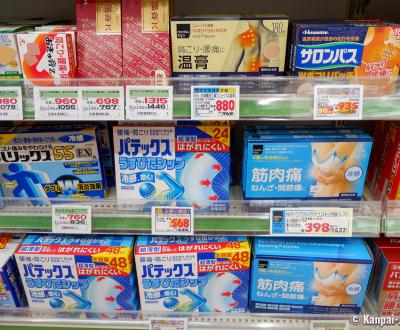Health in Japan
Japan is a developed, densely urbanized country where there is no particular risk for health. With a sanitary level comparable to those of Western Europe and North America, no specific vaccination is required to travel in Japan: Just make sure your vaccination schedule is up to date.
Travelers with prescription may bring up to one-month supply of medication. There is no problem going to Japan with personal contraception solution on a tourist visa.
In Japan, medical care is excellent but expensive. It is thus strongly recommended to subscribe to a health insurance for longer stays. For tourists, health and repatriation insurances are generally included in their credit card contract.
When sick or injured, the best thing to do is to directly go in one of the numerous hospitals available. Call the emergency number 119 for an ambulance.
Earthquakes, sometimes followed by tsunamis, volcanic eruptions and typhoons are the most common natural disasters in Japan. The risk being real Japan Meteorological Agency strictly monitors weather and seismic conditions.
Japanese people are clean and sensitive to odors, especially in summer when temperature and humidity rise. Cosmetics with light perfume, sweat-proof clothes and air-conditioning in the accommodations help staying fresh.
Amateurs of thermal hot springs, Japanese people often enjoy onsen, were relaxation in group is allowed after washing in spaces separated from the shared baths.
Smoking is restricted to limited places, even outdoor. Smoking areas are usually found near subway station entrances. Smoking areas are usually found near subway station entrances. Smoking prohibition inside public places such as restaurants, cafes and the Shinkansen tends to be the new standard.
Lastly, wearing a sanitary face mask in public spaces when sick is a general modern custom, to help preventing the spread of colds and viruses like the Coronavirus.

